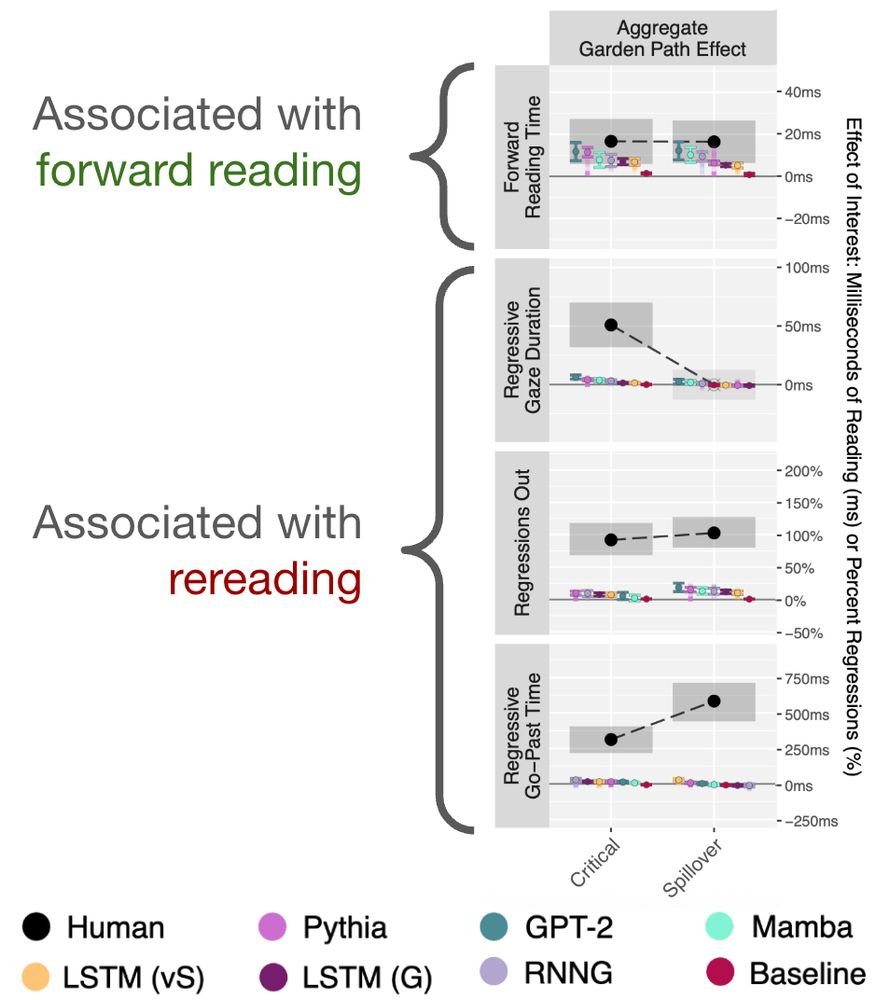




Reading feels effortless, but it's actually quite complex under the hood. Most words are easy to process, but some words make us reread or linger. It turns out that LLMs can tell us about why, but only in certain cases... (1/n)
Reading feels effortless, but it's actually quite complex under the hood. Most words are easy to process, but some words make us reread or linger. It turns out that LLMs can tell us about why, but only in certain cases... (1/n)

